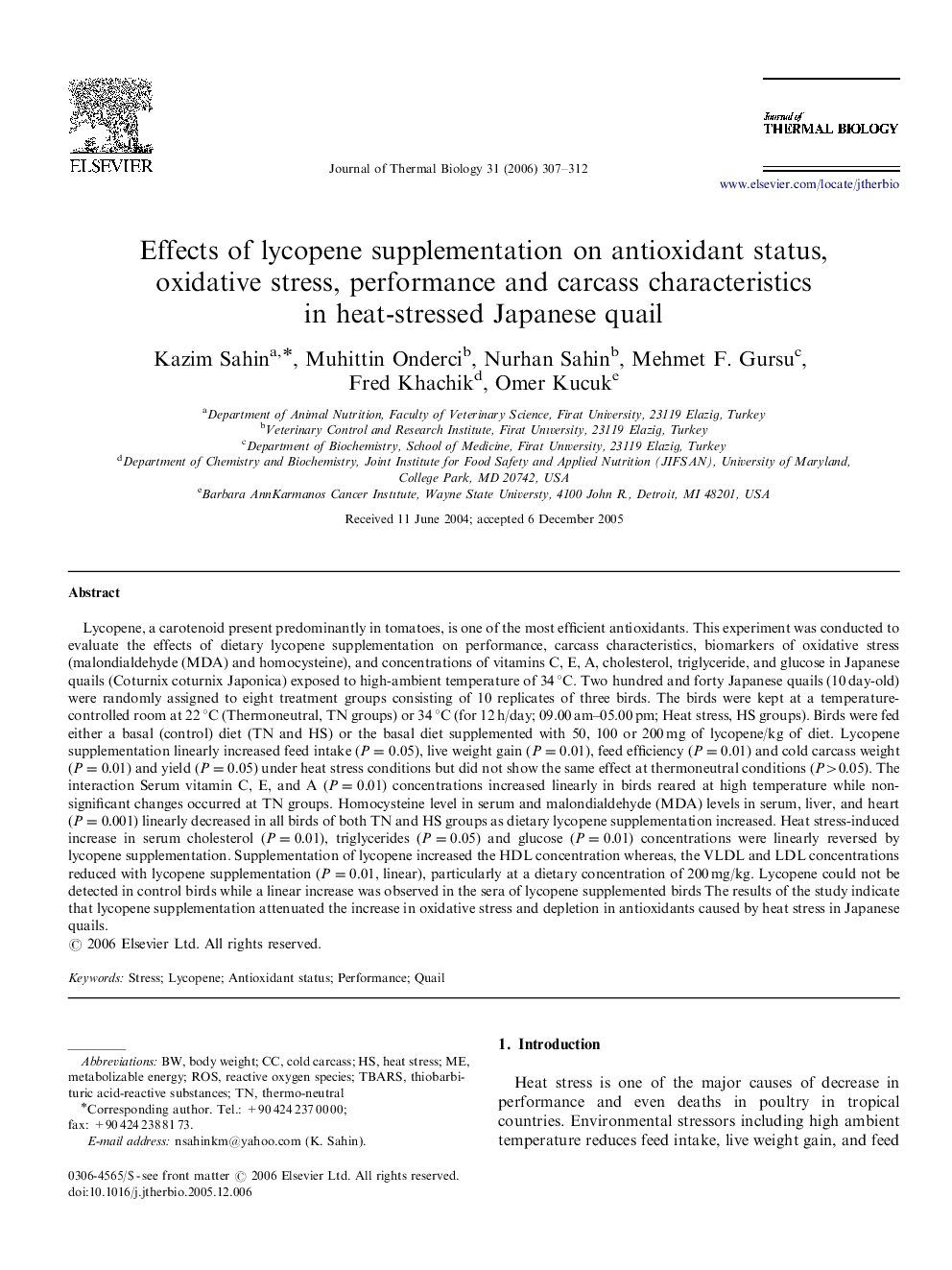| Article ID | Journal | Published Year | Pages | File Type |
|---|---|---|---|---|
| 2843841 | Journal of Thermal Biology | 2006 | 6 Pages |
Lycopene, a carotenoid present predominantly in tomatoes, is one of the most efficient antioxidants. This experiment was conducted to evaluate the effects of dietary lycopene supplementation on performance, carcass characteristics, biomarkers of oxidative stress (malondialdehyde (MDA) and homocysteine), and concentrations of vitamins C, E, A, cholesterol, triglyceride, and glucose in Japanese quails (Coturnix coturnix Japonica) exposed to high-ambient temperature of 34 °C. Two hundred and forty Japanese quails (10 day-old) were randomly assigned to eight treatment groups consisting of 10 replicates of three birds. The birds were kept at a temperature-controlled room at 22 °C (Thermoneutral, TN groups) or 34 °C (for 12 h/day; 09.00 am–05.00 pm; Heat stress, HS groups). Birds were fed either a basal (control) diet (TN and HS) or the basal diet supplemented with 50, 100 or 200 mg of lycopene/kg of diet. Lycopene supplementation linearly increased feed intake (P=0.05P=0.05), live weight gain (P=0.01P=0.01), feed efficiency (P=0.01P=0.01) and cold carcass weight (P=0.01P=0.01) and yield (P=0.05P=0.05) under heat stress conditions but did not show the same effect at thermoneutral conditions (P>0.05P>0.05). The interaction Serum vitamin C, E, and A (P=0.01P=0.01) concentrations increased linearly in birds reared at high temperature while non-significant changes occurred at TN groups. Homocysteine level in serum and malondialdehyde (MDA) levels in serum, liver, and heart (P=0.001P=0.001) linearly decreased in all birds of both TN and HS groups as dietary lycopene supplementation increased. Heat stress-induced increase in serum cholesterol (P=0.01P=0.01), triglycerides (P=0.05P=0.05) and glucose (P=0.01P=0.01) concentrations were linearly reversed by lycopene supplementation. Supplementation of lycopene increased the HDL concentration whereas, the VLDL and LDL concentrations reduced with lycopene supplementation (P=0.01P=0.01, linear), particularly at a dietary concentration of 200 mg/kg. Lycopene could not be detected in control birds while a linear increase was observed in the sera of lycopene supplemented birds The results of the study indicate that lycopene supplementation attenuated the increase in oxidative stress and depletion in antioxidants caused by heat stress in Japanese quails.
